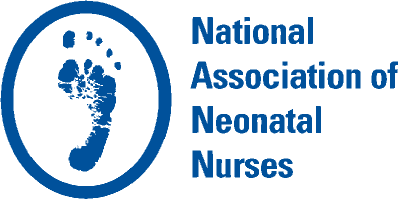NANNP Corner
2020: The Year of Change
Lizz Welch-Carre, EdD MS NNP-BC APRN
NANNP Council Chair
2020 has been a year of unforeseen challenges, compromises, and concessions. I am not sure any of our training prepared us for the scale or rapidity of changes taking place to address COVID-19. We have had to socially distance to protect ourselves, our families, and our patients and their families. We have had to learn to communicate more with our eyes, words, and use intonation in our voices with telemedicine becoming a routine method of patient consultation. Our hearing has been tested because we can no longer see people's lips when they are speaking due to face masks. We have also had to become adaptive to daily changes in policies and procedures, sometimes more than once in a single day. The "new norm" is stressful and not just in the health care field. This pandemic has created an international mental health crisis because it has isolated so many and has significantly impacted the global economy (United Nations, 2020).
Additionally, we have had to confront some significant social, cultural, and racial issues that exist in this country. Opioid deaths have been on the rise during the COVID-19 pandemic (American Medical Association, 2020). Our attention is being directed, once again, to the distinct disparities in health care outcomes among different racial and ethnic groups. COVID-19 deaths among Black and Latinx/Hispanic patients are significantly higher than among those who are white (Ford, 2020). Latinx/Hispanic and Black individuals have been impacted by loss of employment at a greater degree than those who are white (Lopez, 2020). Nowadays, it is difficult to overlook racial injustice and the impact it has on Black, Indigenous, and People of Color (BIPOC) every day of their lives, especially with the release of the video footage showing George Floyd's murder at the hands of police.
Most of the changes that have occurred in society and around the world in the last few months have been out of necessity. There is a need to "flatten the curve" and stop the spread of COVID-19 in order to protect people's health and to be able to provide services to others. At the same time, it is necessary that we tackle racial, ethnic, and cultural bias because it impacts the health and wellness of our patients and families and people around the world (Dadouch, 2020). To march forward with change it will require some discomfort: Discomfort in wearing masks and maintaining social distance; discomfort in looking at data to note where disparities exist and addressing those inequities with honesty and transparency; and discomfort in being challenged and asked to change as we move toward a new norm.
I do not know what the process of change will be. I do know that it will require time, effort, compassion, compromise, and grace. It will necessitate data collection because without data there is no way to know how to proceed or hold ourselves accountable, not just as individuals but as a society. As nurse practitioners, can we maintain practices that will protect others from the COVID-19 pandemic? As individuals, can we unite to change our culture to be more equitable and eliminate the disparities that exist on so many levels?
Because I do not have answers, I thought it might be helpful to share some links with you:
- Podcasts
- Statements
- CDC resources
- Apps to utilize
I would like to encourage people to attend the NANN virtual conference this year, which will be held live in your living room, office, or maybe on the beach on October 21-23! You can register here. Sessions will be on demand through March 1, 2021, if you are unable to join us virtually. Heather Burris, MD MPH, will lead us through her session, "Racial Disparities in Birth Outcomes: Considering the Environment Outside of the Hospital Wall," at the APRN Summit, which will be held on October 23, 2020, at 1:00 pm CST. I hope to see you there!
References:
- American Medical Association. (2020, July 8). Issue brief: Reports of increases in opioid-related overdose and other concerns during COVID pandemic. Retrieved from American Medical Association: Opioid deaths have been on the rise during the COVID-19 pandemic
- Bird, R. R. (2020, June 23). Is the media creating division on COVID-19 health practicies. Retrieved from Gallup: https://news.gallup.com/poll/312749/media-creating-division-covid-health-practices.aspx
- Dadouch, S. (2020, July 8). Black lives matter protests spark debate over racism in the Arab world. Retrieved from The Washington Post: https://www.washingtonpost.com/world/middle_east/black-lives-matter-protests-spark-debate-over-racism-in-the-arab-world/2020/07/07/83234c5e-b7ab-11ea-9a1d-d3db1cbe07ce_story.html
- Ford, T. R. (2020, June 16). Race gaps in COVID-19 deaths are even bigger than they appear. Retrieved from Brookings: https://www.brookings.edu/blog/up-front/2020/06/16/race-gaps-in-covid-19-deaths-are-even-bigger-than-they-appear/
- Lopez, M. R. (2020, May 5). Financial and health impacts of COVID-19 vary widely by race and ethnicity. Retrieved from Pew Research Center: https://www.pewresearch.org/fact-tank/2020/05/05/financial-and-health-impacts-of-covid-19-vary-widely-by-race-and-ethnicity/
- United Nations. (2020, May 13). Executive summary: COVID-19 and the need for action on mental health. Retrieved from The United Nations: https://www.un.org/sites/un2.un.org/files/un_policy_brief-covid_and_mental_health_final.pdf


